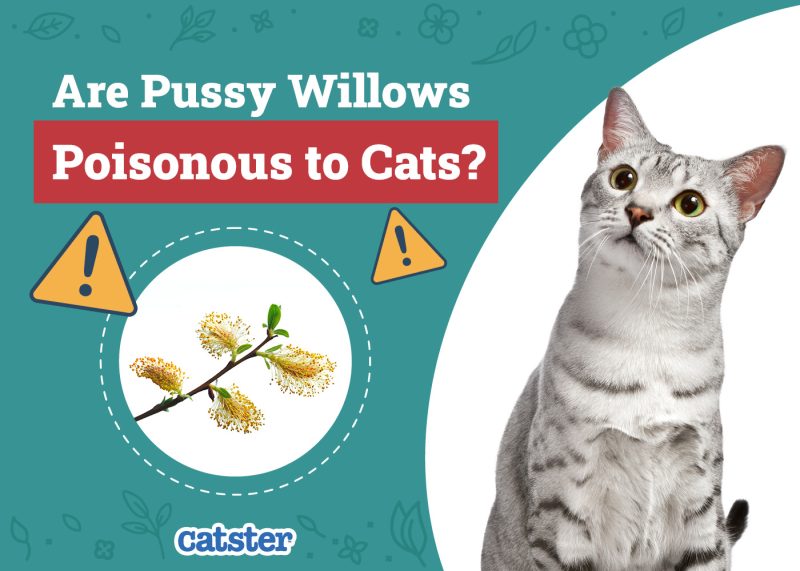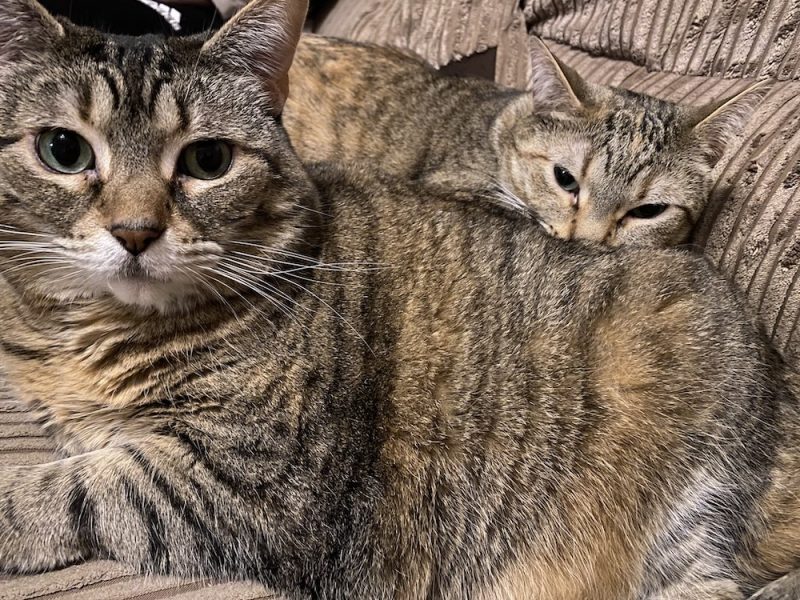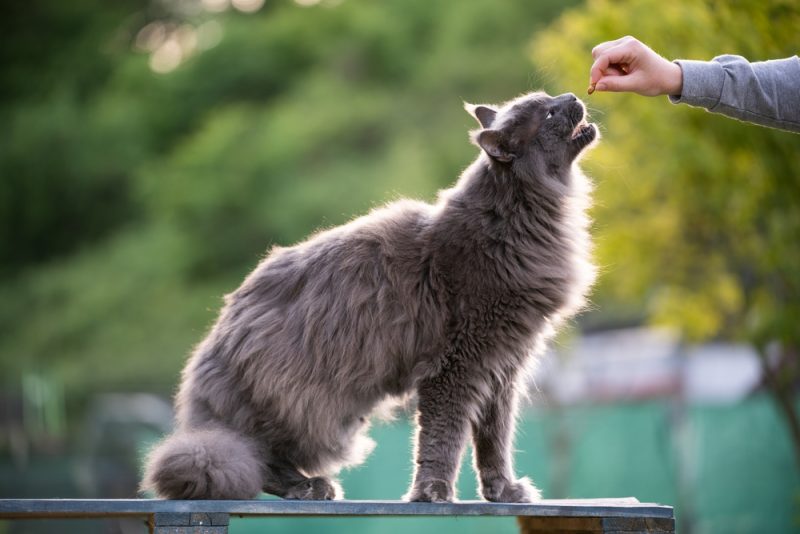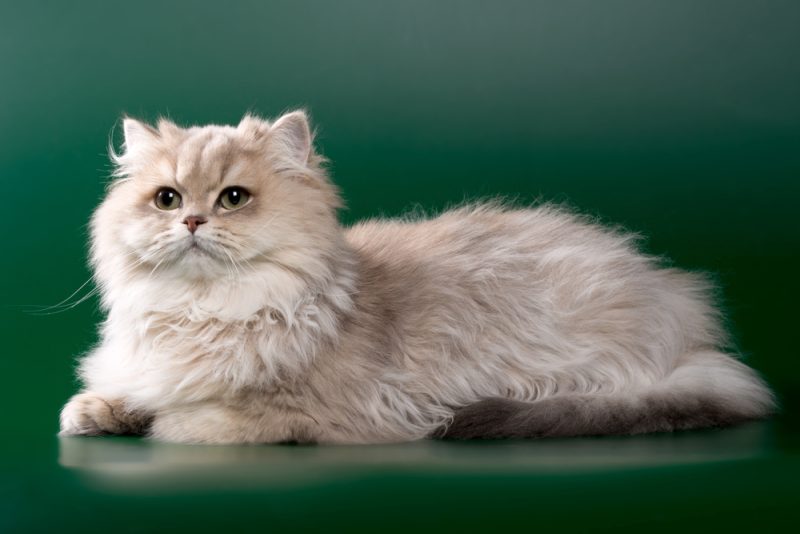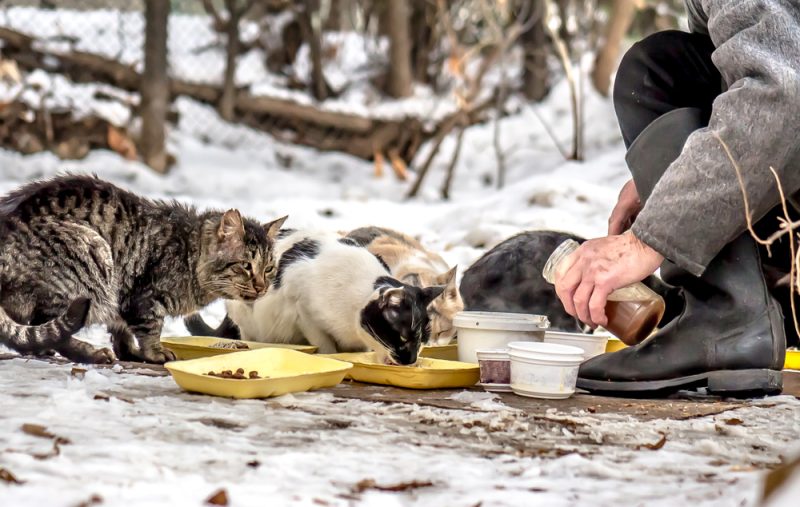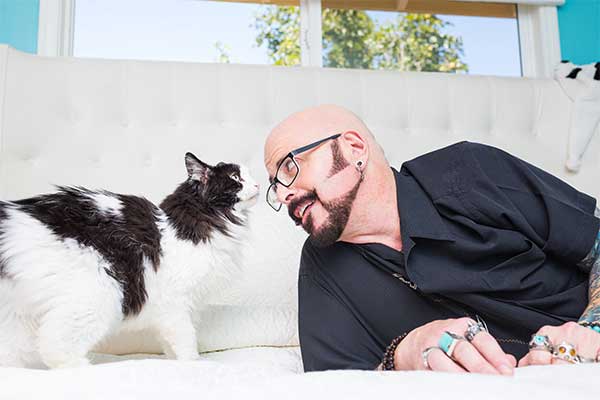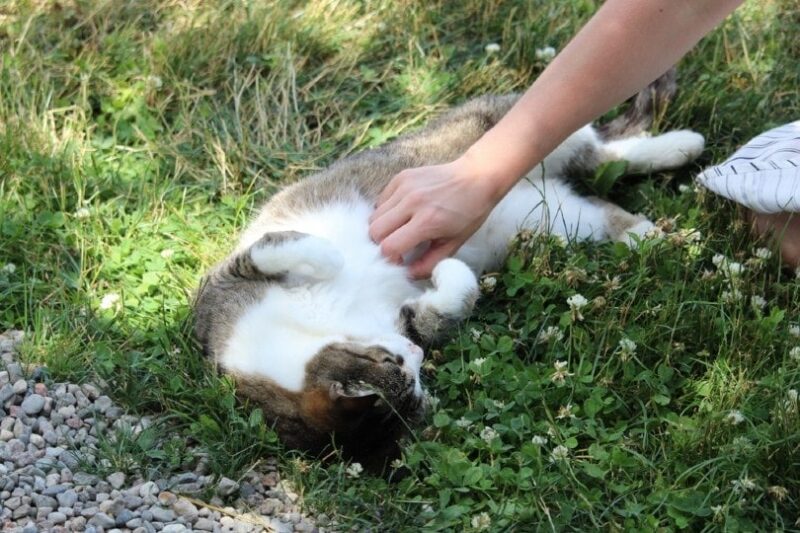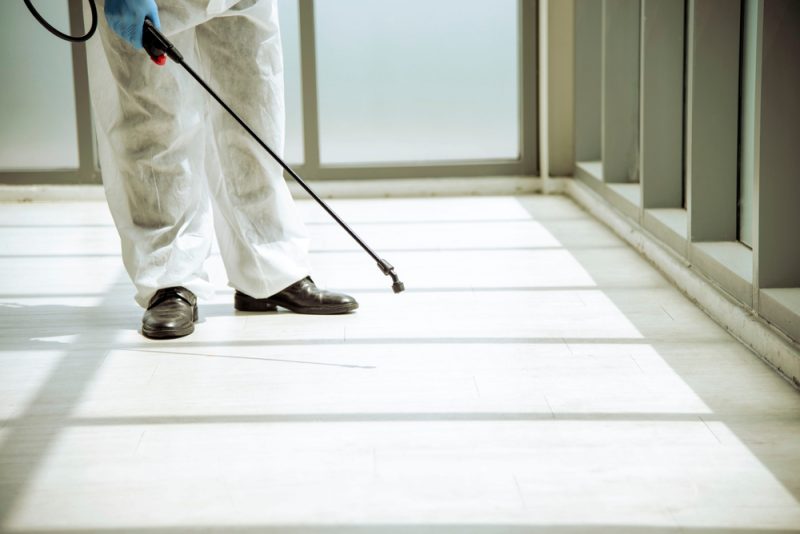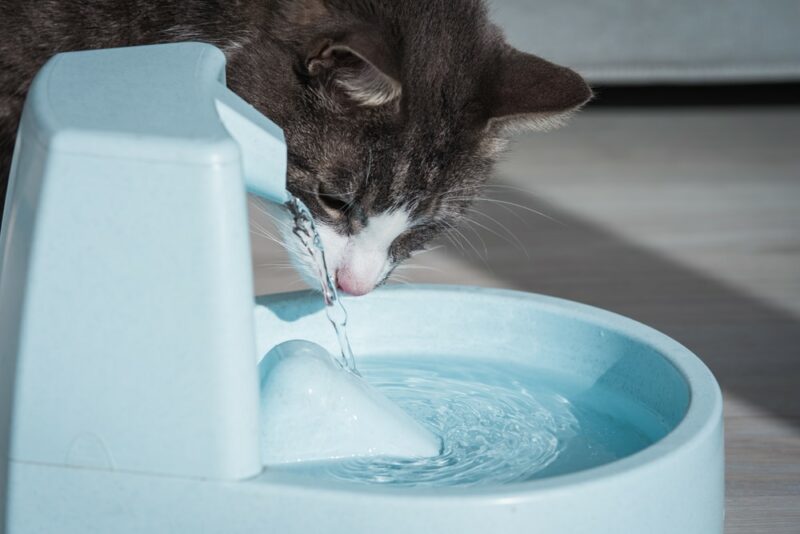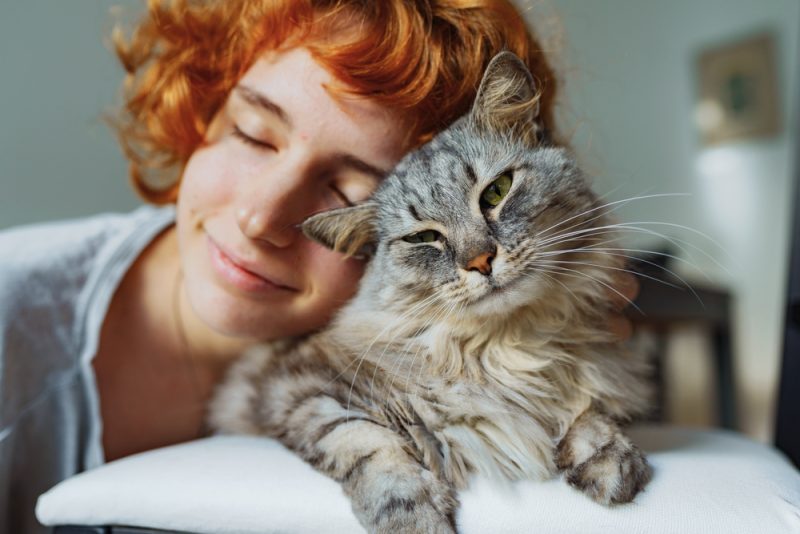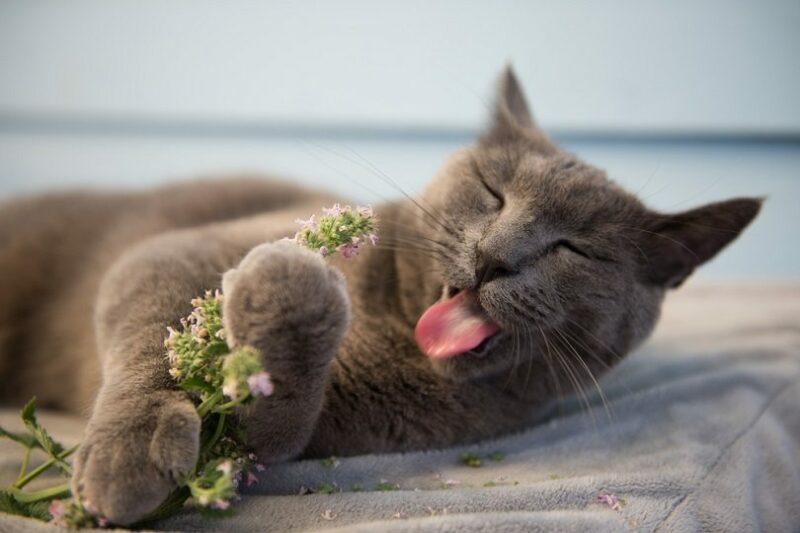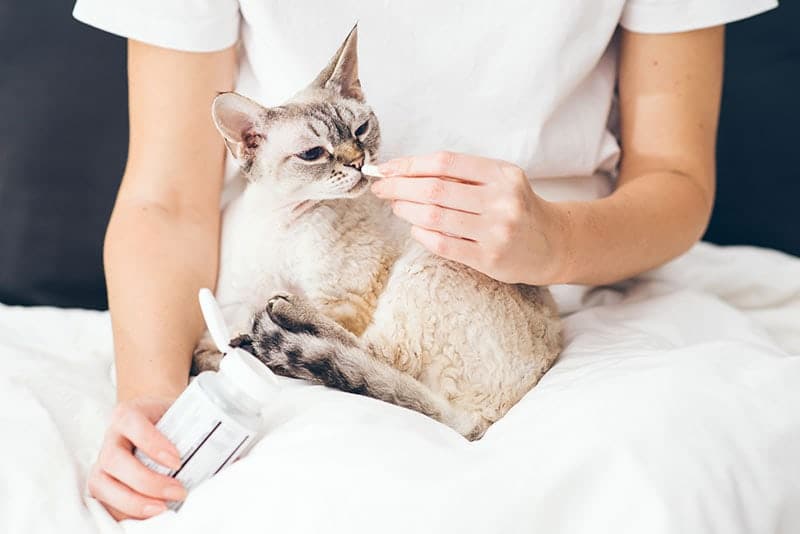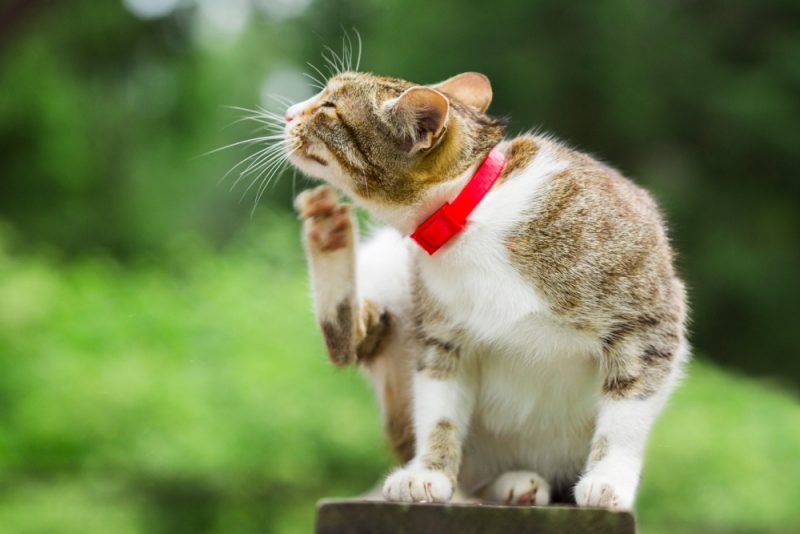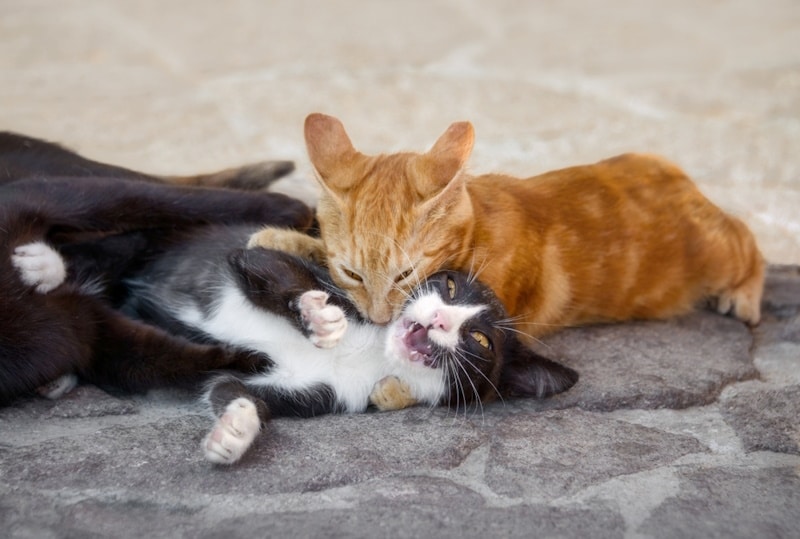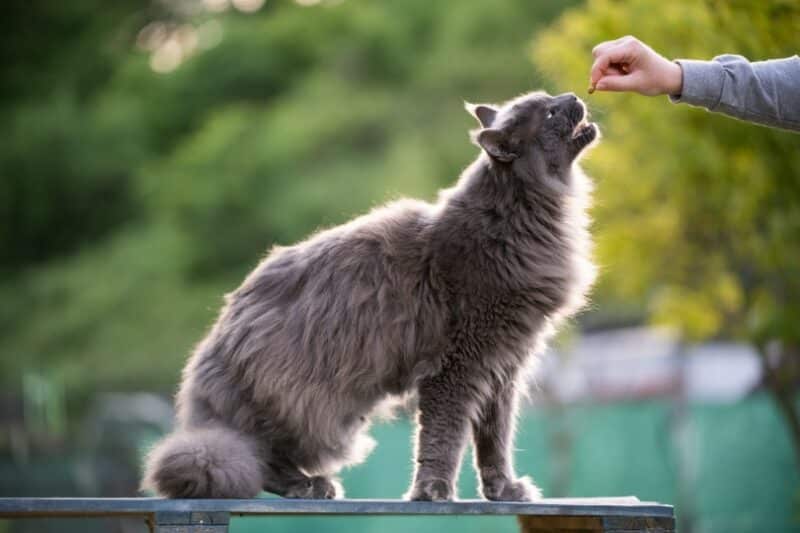If you grew up in Canada and the northern United States, you’re probably familiar with pussy willows. Children are especially drawn to these unique shrubs with their little fuzzy catkins that we see as early signs of spring. But what if your cat is also drawn to pussy willows? Are they safe for cats?
If your cat has ingested any pussy willows, they are safe for the most part. It’s only in large amounts that they can pose a danger.
Here, we look at pussy willows and their effect on cats in more detail and give you a few general tips for keeping your cat safe around plants.

What Are Pussy Willows?
Pussy willows are deciduous shrubs in North America known as Salix discolor. Two other European shrubs belong to the same genus as the North American one, the Salix caprea and the Salix cinerea, and they are also called pussy willows.
The genus Salix includes willow trees, so pussy willows are basically a smaller species of willow. In the late winter or early spring, they sprout catkins, which are gray fuzzy buds that resemble little cats. The fuzz is a protective coating that protects the early buds of flowers before they bloom.
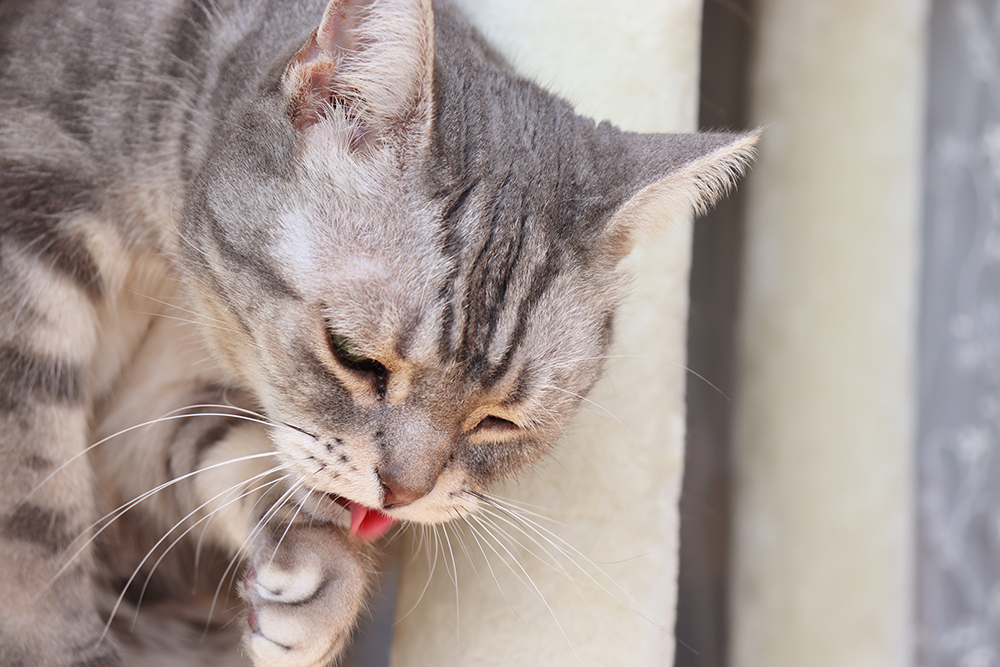
Pussy Willows & Your Pussy Cat
Cats are strict carnivores, also known as obligate carnivores. This means they receive all their essential nutrients, vitamins, and minerals from meat and not from plant sources. So, cats tend not to be interested in plants, which also means they typically won’t show much interest in eating pussy willows. But they might enjoy batting around those fuzzy buds. There’s no harm there!
However, all plants and trees in the Salix family contain salicin, which is a source of salicylic acid. This is the active ingredient found in aspirin and other pain relievers. Aspirin is highly toxic to cats, and too much of it can lead to gastrointestinal upset, as well as ulcers, seizures, hyperthermia, and death if left untreated.
Now, aspirin is a much more concentrated form of salicylic acid than what is found in pussy willows, so your cat would have to eat quite a large number to experience gastroenteritis, which is unlikely because cats don’t usually eat plants (unless it’s cat grass or catnip, of course).
It’s usually safest to keep away from your cat any plants that can be toxic, whether eaten in small or large doses. It’s always best to err on the side of caution.
You can also consult a vet online if you need quick and easy access to an expert’s opinion.
If you need to speak with a vet but can't get to one, head over to PangoVet. It's an online service where you can talk to a vet online and get the advice you need for your pet — all at an affordable price!

Protecting Your Cat From Plants
The most obvious solution is to not have any plants in the house or yard (if you have an outdoor cat) that are known to be toxic. You can refer to the ASPCA’s toxic and non-toxic plants list to see which ones are safest for cats. The following are extra tips that you can try:
- Avoid placing any plants found on the ASPCA’s list that are known to be toxic in your yard or home. There are plenty of beautiful non-toxic plants to choose from.
- If you can’t bring yourself to remove your lovely pussy willows from your home, place them out of reach from your cat. Remember, if your cat is determined, they can find a way to get to your plant. Ensure that there are no shelves or other surfaces that your cat can jump from to reach the pussy willows.
- Consider placing your plants in a room that your cat doesn’t typically access.
- Even if your cat doesn’t show much interest in the toxic plant, you should still not leave them unattended around the plant.
- Various household ingredients can act as cat deterrents. Coffee grounds, cayenne pepper, and citrus juices are all quite effective at keeping cats away, so consider using one or a few of these on your plants.


Conclusion
If your cat doesn’t seem all that interested in pussy willows or only nibbles on one, it shouldn’t be anything to worry about.
But if you suspect that your cat might have eaten a large part of the plant and is now vomiting and has diarrhea, you should take them to the vet. Bring part of the plant with you, so your vet will know the best way to treat your cat.
Always supervise your cat while they are around any of your plants. Even a non-toxic one might cause an upset stomach if your cat eats too much of it. Cats are curious creatures and remarkably talented at getting into things that they shouldn’t!
Featured Image Credit: kdoetsch, Pixabay
